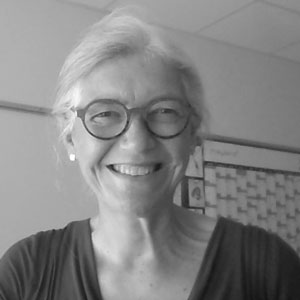
Newsletter January 2023: TAL2022 – Developing student and graduate competences for the 21st Century
On the 8th November, 2022 together with local, national and international colleagues we celebrated SDU’s Teaching for Active Learning (TAL) conference’s 10th anniversary. The TAL conference was initiated in 2012 as a platform for university teachers to inspire fellow teachers by sharing their diverse interpretations of active teaching and learning and to profile SDU’s underlying principle for active teaching and learning.
TAL2022 with the special theme Developing student and graduate competences for the 21st Century
In recognition of the importance attributed to graduate competences by employers and societies at large, ‘Developing student and graduate competences for the 21st Century’ was TAL2022’s special theme. We were delighted that Norman Jackson, Emeritus Professor at the University of Surrey, UK accepted our invitation to launch the conference with his keynote entitled ‘Developing Competent & Creative People for the 21st Century: An Ecological Narrative’. Norman Jackson is committed to disseminating thinking and studies about lifewide education, which focuses on recognising and valuing current formal and informal learning opportunities. Norman Jackson is an author and editor of a wide range of publications on lifewide learning and the developer of the open access resources Lifewide Education. You can access Norman Jackson’s keynote speech via the video and the pdf of his presentation slides.
Here, Donna Hurford would like to share a few of her take-aways from Norman Jackson’s keynote:
Ecological competence development
Norman Jackson shared his perspective on the interrelatedness of competence development and an ecological world view:
Holistic notions of competence for 21st century must embrace an ecological world view: mindful that we are ecological beings, enacting life within and with an ecological world of relationships, connectivity and interdependency.
When we think of ecological competence development, what difference does this make to how we support students’ competence development in our roles as course designers, teachers, and leaders? And how do and how will students interpret their university experiences as part of their ecological competence development? What do we already do and what more can we do through our courses and study programmes to recognise, celebrate and foster ecological competence development?
Narratives and self-authorship
Norman Jackson exemplified lifewide learning through his own story. By sharing personal insights into his professional, social and personal life he crafted his own narrative and helped us understand why he is passionate about lifewide learning. Developing our own and encouraging students to develop their own narratives, can help us identify our competences and our lifewide learning, which can sometimes be hidden from our view because they are so implicitly part of us. Norman Jackson offered the ‘Ecology of Competent, Creative Practice Heuristic’ which identifies seven check-ins surrounding an individual person, which offers a helpful framework for unpacking self-narratives. In addition, Marcia B. Baxter-Magolda’s chapter on self-authorship in Norman Jackson’s book ‘Learning for a Complex World: A Lifewide Concept of Learning, Development and Education’ introduces ‘Learning Partnerships Model’, through which educators can facilitate student awareness of their competences and their lifewide learning.
Celebrating lifewide learning
Norman Jackson shared the five step lifewide learning award they implemented at the University of Surrey, UK. The award includes five stages for the student to work through: 1. Map, 2. Plan, 3. Act and React 4. Record 5. Reflect and Synthesize, together with a list of capabilities and values to help guide the student with their self-authorship. Students are encouraged to be creative and to try out novel digital and analogue ways to capture their stories. Interestingly the paper scrapbook is one of the most popular media, providing a practical space to collect mementos of learning experiences and in turn a souvenir to return to and even share. Whilst the scrapbook or other modes of capture provide useful depositories for memories of experiences, it is as important that the students share their narratives and in that way practise making their competence development explicit and relevant for new challenges and contexts.
SDU RIO’s Learner for Life model
After Norman Jackson’s keynote we introduced SDU RIO’s Learner for Life Model followed by Norman Jackson’s reflections on the model. You can read more about the Learner for Life model in the interview with Tine Lynfort Jensen and Linette Sønderby, SDU RIO Career & Employability consultants.
Panel Discussion
Having opened the conference with insights on lifewide learning and competence development, we enjoyed and were inspired by presentations, posters and workshops held by educators from different higher education institutions. And to conclude, we listened to the panel members, including Norman Jackson and three heads of study from SDU: Caroline Schaffalitzky, Michael Petersen and Jannek Sommer. Each panel member is involved with facilitating and leading on competence development within their study programmes. The panelists were invited to share their responses to the following questions and follow on questions from delegates:
- From your perspectives, which graduate competences will be the most important ones for the 21st century?
- What do you think a university degree will look like in five years - supposing the lines between "ordinary" education" and lifelong learning are either blurred, erased or bridged by new formats?
- What are your thoughts about integrating lifewide learning in your study programmes?
Thinking about lifewide learning, what inspiration will you take from today's conference for your programmes of study and future work?
Whilst the panelists sometimes differed with their views and opinions, they agreed that university study programmes are designed to develop students’ subject expertise, as well as equipping them with relevant skills and competences, with critical thinking at the fore. You can watch the panel debate and listen to the panelists’ robust discussions about competence development and lifewide learning. To conclude, panelists were asked by a conference delegate to share their views on universities’ responsiveness to the current climate emergency. The panelists shared the priorities for their study programmes, remaining mindful of how long it can take for universities to be responsive and to implement change.
Thanks to the panelists: Norman Jackson, Caroline Schaffalitzky, Michael Petersen and Jannek Sommer for sharing their insights.
And to conclude thank you to all who contributed to TAL2022, whether by presenting and/or participating. TAL exists to support active teaching and learning; it wouldn’t be the same without you!
This newsletter’s examples include interviews with two TAL2022 presenters: Signe Hannibal Jensen and Patricia Wolf about their presentations.
TAL2023
Remember to put TAL2023 with its special theme ‘Group work – function and facilitation’ in your calendar – see you on Thursday 2nd November 2023.
Book of abstracts
In keeping with the TAL conference tradition, TAL2022 offered a wide range of informative and engaging presentations, posters and workshops by university teachers which you can access in the Book of Abstracts.

